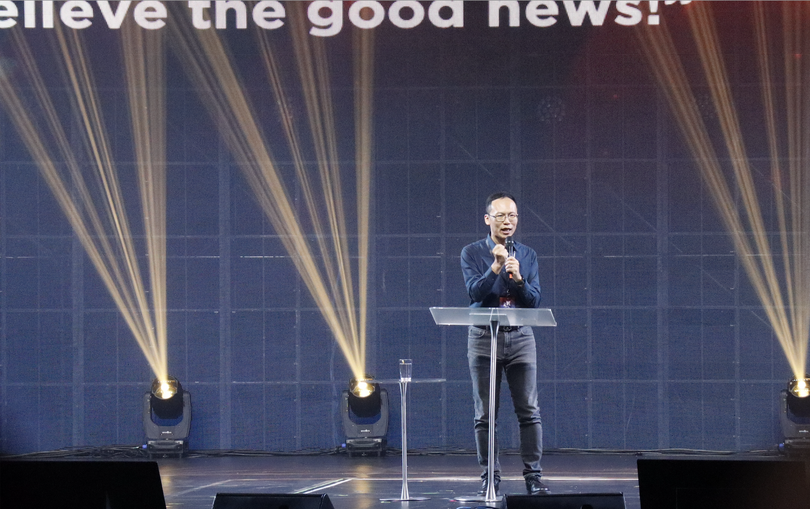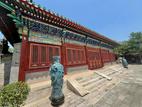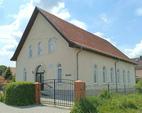Rev. Dr. David Doong, general secretary of the Chinese Coordination Centre of World Evangelization, delivered an opening address titled "Why Is the Gospel Such Good News?" at the Global Chinese Alpha Conference 2025 in Kuala Lumpur, Malaysia.
Held from March 18 to 19 under the theme "Revival 2025," the conference drew participation from more than 3,500 Chinese attendees across 29 countries and regions.
In his address, Rev. Doong observed that while the term "gospel" is frequently used among Christians, however, when asked to explain what makes the gospel such good news, many are left speechless. He questioned. "Then what faith are we proclaiming? What kind of disciples are we forming?"
He went on to identify a prevailing trend in churches today, which he described as being "three-oriented." First, he noted the religionization of the gospel, where it remains confined within church activities and fails to bring transformation to individuals' families, workplaces, or personal relationships.
Second, he spoke of the secularization of the gospel, highlighting that many Christians' values and aspirations mirror those of the secular world. "A Christian's ideal life is often described as attending a good college, securing a good job, marrying well, buying a house, and having beautiful children—repeating the cycle for the next generation. The only visible difference from non-believers seems to be church attendance and tithing," he said. "The concept of a successful disciple is being shaped more by the world than by God."
Third, he addressed the personalization of the gospel, where the Christian's talk is mainly "about me." Drawing on Charles Taylor's A Secular Age, Rev. Doong noted that we live in the era of the "Real Me," where the highest virtue is self-authenticity. "The gospel becomes solely about personal salvation and blessing, with little regard for the glory of God."
He concluded, "The struggles and weaknesses faced by many Christians today stem largely from a misunderstanding of the gospel." Citing Ephesians, he reminded the audience, "I kneel before the Father, from whom every family in heaven and on earth derives its name…may have power, together with all the Lord's holy people, to grasp how wide and long and high and deep is the love of Christ."
Rev. Dr. David Doong then explained the gospel's four dimensions, using biblical imagery of its height, depth, breadth, and length.
The height of the gospel, he explained, lies not only in personal salvation, church growth, or ministry development, but in the advancement of God's kingdom.
In contrast to earthly kings who ascend to power by stepping over the bodies of others, Jesus, as king, laid down his own life for us. "He died on the cross for us," Doong declared. "This king did not use us to reach his throne; rather, he gave himself up for us and rose from the dead."
The depth of the gospel, he continued, reaches the depth of the human soul. He urged believers to engage in honest self-reflection and highlighted several indicators of spiritual unhealthiness. These included using God as a means to avoid Him—engaging in spiritual activities that serve self-interest rather than truly connecting with Him. He also asked whether believers feel apathy, anger, sorrow, or fear, or deny the past's impact on their lives. He noted that ninety percent of church conflicts are not about biblical truths but about issues of pride, preferences, habits, and personal grudges—often masked with spiritual excuses to avoid facing personal spiritual life problems and judge others' spiritual progress.
The breadth of the gospel, he said, encompasses every area of life—family life, parent-child relationships, and how believers follow Jesus in everyday conflicts.
"Family life is the first training ground for discipleship," Doong emphasized. "Children are the first disciples that parents are called to lead and nurture. While this is not solely the parents' responsibility, they must take ownership of it."
He posed a reflective question, "How does God's reign transform our relationships with our spouses and children? How does it impact us in the workplace? When we face difficult bosses, colleagues, or subordinates, can we respond by imitating Christ? God is present even in our interactions with others."
The length of the gospel, Doong said, reminds believers that "no matter how much suffering we endure in this life, it is but light and momentary compared to the glory to come." He shared a personal reflection inspired by riding a roller coaster with his son. Previously puzzled by why people would pay to feel like they were dying, he came to realize, "Those who get on the ride have faith that they won't die in two minutes. That faith allows them to overcome the fear of death." He continued, "Isn't that the Christian life? The cross transforms the symbol of death into a symbol of resurrection and the symbol of shame into a symbol of glory. With our trust in Christ, we can triumph over death, no matter what we face in life."
To help believers apply the gospel to their daily lives, Rev. Doong proposed five reflective questions: What happened? What emotions am I experiencing? What story am I living in? How does the gospel challenge that story? And how can I break away from it and live in the gospel?
He shared a personal example from when he first assumed the role of general secretary at the Chinese Coordination Centre of World Evangelization. Tasked with inviting pastors to speak at conferences, he often felt anxious, fearful, and tempted to avoid the responsibility. In response, he began to examine himself with the five questions. He discovered that he had been living in a narrative shaped by the belief that "serving in the church is like surviving in a martial arts world"—that one's worth and status depended on the ability to secure high-profile speakers. If he failed, he feared being seen as incompetent or unqualified.
"But then," he reflected, "I remembered the Lord I follow—rejected and despised for our sake, yet raised from the dead three days later. That truth reshaped my story. The church is ruled by God, not by the laws of human power or prestige. Whatever we do for the least of people, we do for the Lord. And those of us in leadership must be servants."
Motivated by this renewed perspective, he decided to give up all forms of manipulation and made calls to invite sincerely. One such conversation unexpectedly led to a future collaboration with a pastor who wasn't present at the "Revival 2025."
Pastor Doong concluded, "We often think our problems are complex, but in the light of the gospel, everything becomes simple."
He closed with a call to action, "We must not only proclaim the gospel but also embody its core message. Our lives must be continually transformed by it."
Originally published by the Christian Times
- Edited by Karen Luo, translated by Poppy Chan












